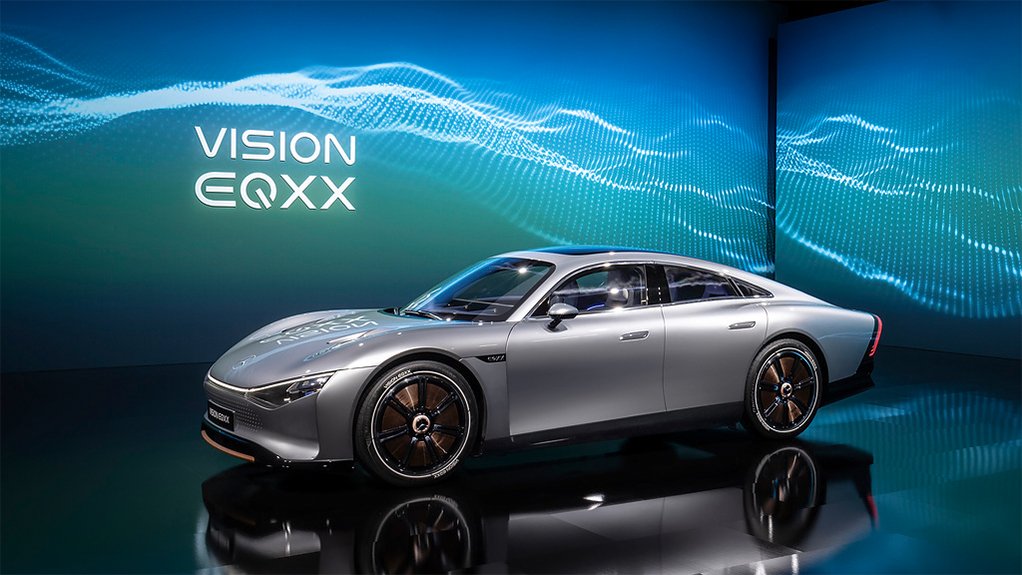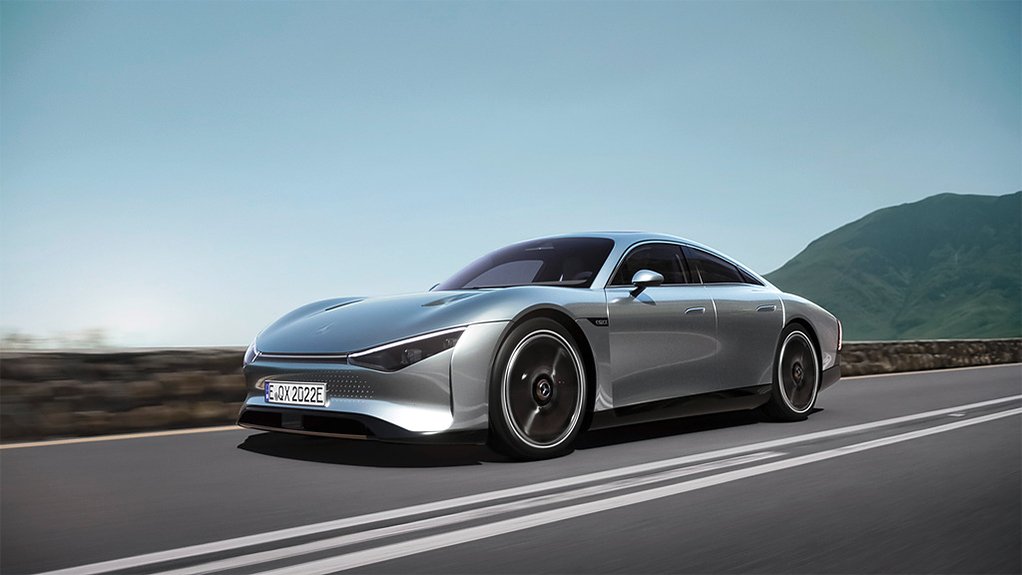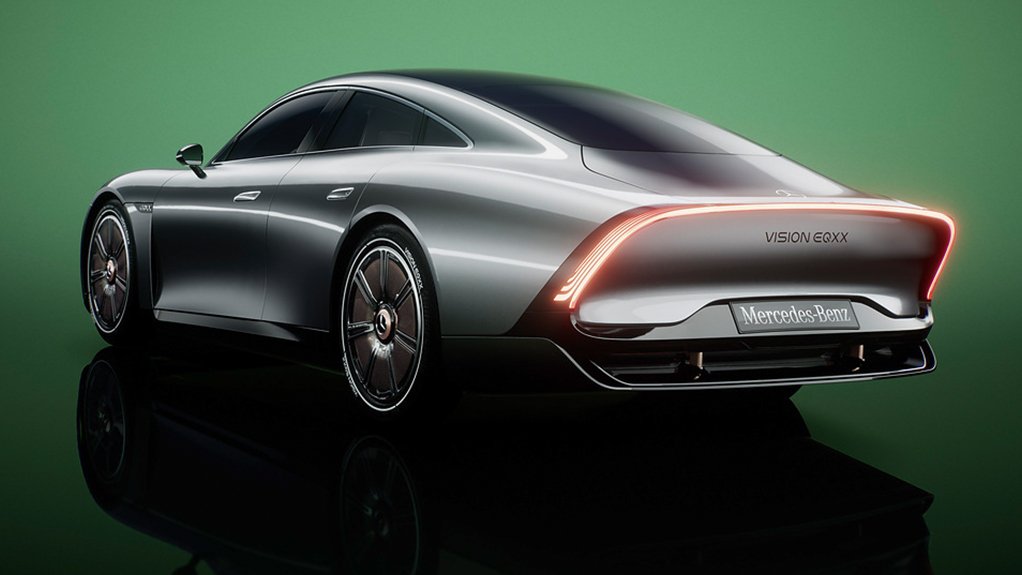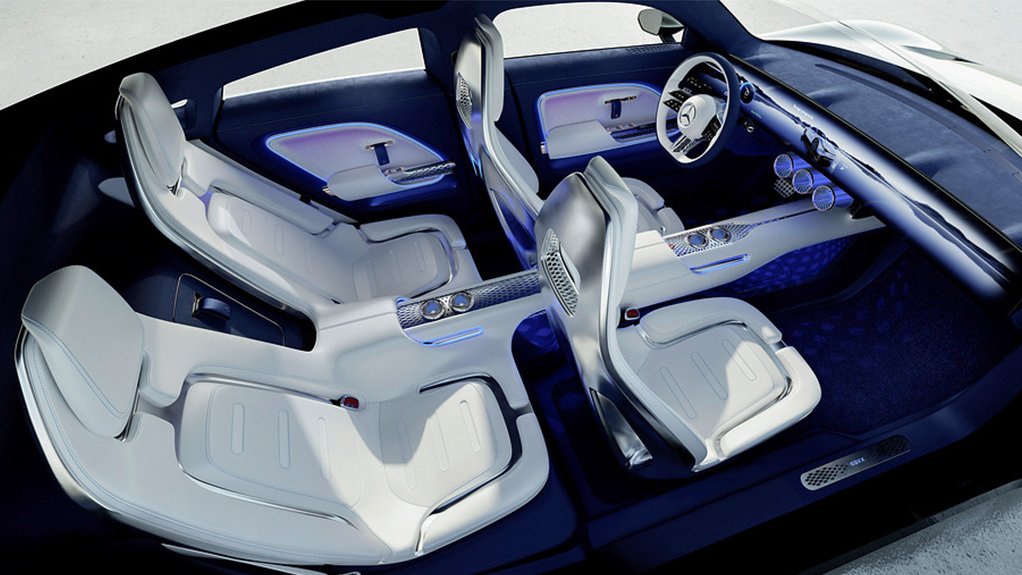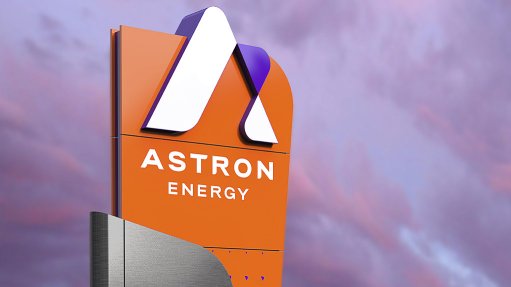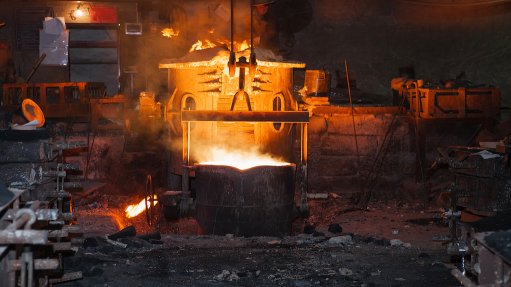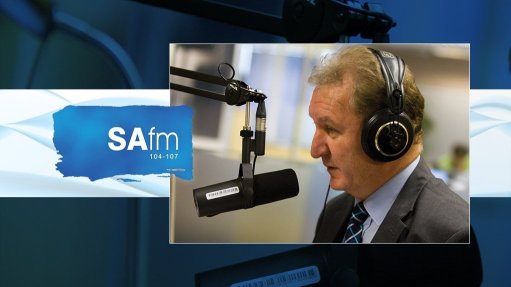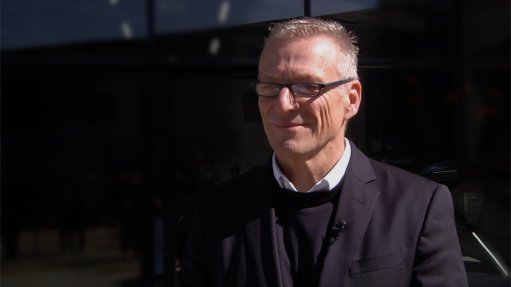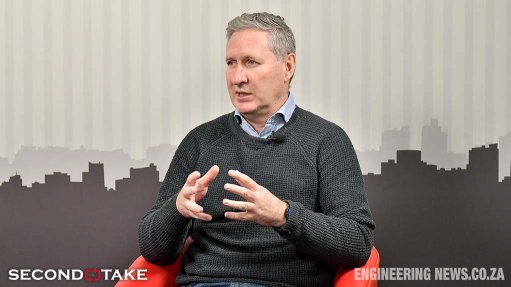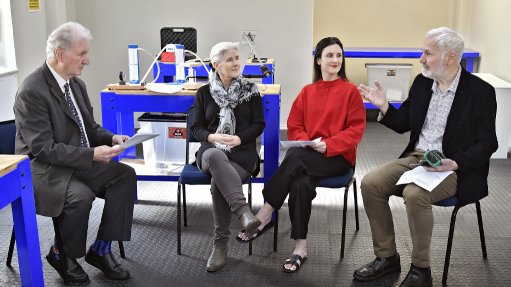Mercedes-Benz unveils its vision for electric mobility – a 1 000 km car
Are electric vehicles (EVs) with their currently limited range suitable for one of life’s more iconic events – the road trip?
Mercedes-Benz thinks so. The German car maker used this month's Consumer Electronics Show in Las Vegas to lift the veil on a vehicle capable of tackling distances much longer than the current average EV range of roughly 400 km – the Vision EQXX.
“The Mercedes-Benz Vision EQXX is how we imagine the future of electric cars,” says Daimler and Mercedes-Benz chairperson Ola Källenius.
“Just one-and-a-half years ago, we started this project leading to the most efficient Mercedes-Benz ever built, with outstanding energy consumption of less than 10 kWh per 100 km.
“The Vision EQXX has a range of more than 1 000 km on a single charge, using a battery that would fit even into a compact vehicle.
“It is an advanced car in so many dimensions – and it even looks stunning and futuristic. With that, it underlines where our entire company is headed. We will build the world’s most desirable electric cars,” says Källenius.
Rather than increasing the size of the battery, Mercedes-Benz tasked an international team to focus on maximising long-distance efficiency, to ensure that the electric vehicle remains one suited to the road trip.
The result is a battery pack that holds almost 100 kWh of energy, yet has 50% less volume and is 30% lighter than what Mercedes-Benz regards as its benchmark battery pack in the Mercedes-Benz EQS.
To put all of this in real-life perspective: The Vision EQXX uses less than 10 kWh of electrical energy to travel 100 km. Translated into fossil-fuel consumption, this is around one litre of fuel per 100 kilometres. (Ultra-thin solar roof panels also feed the battery system for up to 25 km of extra range.)
Other innovations on the Vision EQXX include a new one-piece internal display that comes to life with responsive real-time graphics.
The display spans 1.2 m from one A-pillar to the other. With an 8K resolution, the mini-LED display acts as a portal connecting the driver and occupants with the car and the world outside.
The Mercedes-Benz team worked with navigation experts Navis Automotive Systems to develop the first real-time three-dimensional (3D) navigation system on a screen of this size.
It performs zoom and scroll functions from satellite view down to a height of ten metres in the 3D city representation. Executed on the one-piece display, it promises the user clear, accurate and intuitive route guidance.
The Vision EQXX also uses the map data to ‘see into the future’, anticipating what lies ahead to help the driver take advantage of it in a way that maximises driving efficiency.
The interior features a large number of materials sourced from startups around the world. The door pulls are made from AMsilk’s Biosteel fibre. This biotechnology-based and certified-vegan silk-like fabric comes from the inventor of biofabricated (nature-identical) fibre.
Another sustainable material is MyloTM, a vegan leather alternative made from mycelium, which is the underground rootlike structure of mushrooms.
The animal-free leather alternative called Deserttex is a sustainable cactus-based biomaterial made from pulverised cactus fibres combined with a sustainable bio-based polyurethane matrix.
On the floor, the carpets are made from 100% bamboo fibre.
Elsewhere, the Vision EQXX makes extensive use of recycled waste materials, such as the recycled plastic bottles used in a textile to enhance the floor area and door trim.
The interior also features UBQ material, a sustainable plastic substitute made from household and municipal landfill waste.
The doors of the Vision EQXX are made from a hybrid of carbon- and glass-fibre-reinforced plastic components with aluminium reinforcements.
Also, a new polyamide foam reinforces the lower edge of the door and optimises energy absorption in a side-on collision.
On the chassis, aluminium brake discs reduce the mass compared with cast steel discs.
Another efficiency feature of the Vision EQXX that takes its cue from nature is the way the vehicle ‘thinks’, says Mercedes-Benz.
It uses a form of information processing called neuromorphic computing. The hardware runs so-called spiking neural networks. Information is coded in discrete spikes and energy is only consumed when a spike occurs, which reduces energy consumption by orders of magnitude.
Although neuromorphic computing is still in its infancy, systems like these will be available on the market in just a few years. When applied on scale throughout a vehicle, they have the potential to “radically reduce” the energy needed to run the latest artificial intelligence technologies, promises the German car maker.
In the end, it adds, the outcome of building the Vision EQXX will “be a road-legal research prototype that delivers more range from less energy, more tangible luxury and convenience with less impact on nature, and more electric mobility with less waste”.
Comments
Press Office
Announcements
What's On
Subscribe to improve your user experience...
Option 1 (equivalent of R125 a month):
Receive a weekly copy of Creamer Media's Engineering News & Mining Weekly magazine
(print copy for those in South Africa and e-magazine for those outside of South Africa)
Receive daily email newsletters
Access to full search results
Access archive of magazine back copies
Access to Projects in Progress
Access to ONE Research Report of your choice in PDF format
Option 2 (equivalent of R375 a month):
All benefits from Option 1
PLUS
Access to Creamer Media's Research Channel Africa for ALL Research Reports, in PDF format, on various industrial and mining sectors
including Electricity; Water; Energy Transition; Hydrogen; Roads, Rail and Ports; Coal; Gold; Platinum; Battery Metals; etc.
Already a subscriber?
Forgotten your password?
Receive weekly copy of Creamer Media's Engineering News & Mining Weekly magazine (print copy for those in South Africa and e-magazine for those outside of South Africa)
➕
Recieve daily email newsletters
➕
Access to full search results
➕
Access archive of magazine back copies
➕
Access to Projects in Progress
➕
Access to ONE Research Report of your choice in PDF format
RESEARCH CHANNEL AFRICA
R4500 (equivalent of R375 a month)
SUBSCRIBEAll benefits from Option 1
➕
Access to Creamer Media's Research Channel Africa for ALL Research Reports on various industrial and mining sectors, in PDF format, including on:
Electricity
➕
Water
➕
Energy Transition
➕
Hydrogen
➕
Roads, Rail and Ports
➕
Coal
➕
Gold
➕
Platinum
➕
Battery Metals
➕
etc.
Receive all benefits from Option 1 or Option 2 delivered to numerous people at your company
➕
Multiple User names and Passwords for simultaneous log-ins
➕
Intranet integration access to all in your organisation



